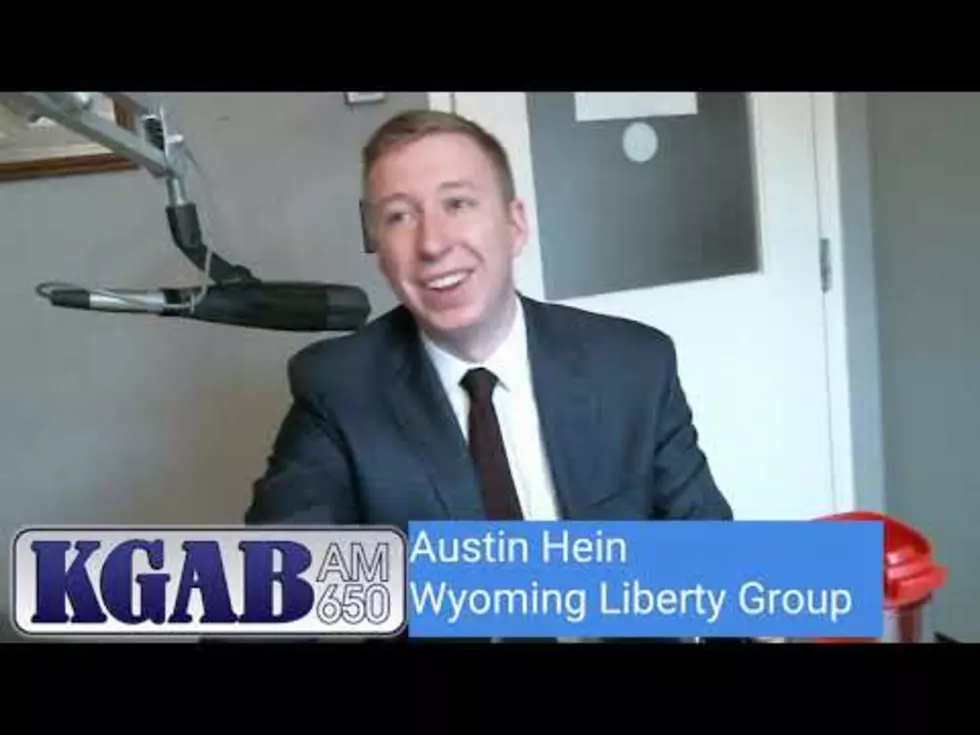
Does the ‘Rule of Law’ Apply in Cheyenne?
~~ By Boyd Wiggam~~Wyoming Liberty Group~~
When we talk about the rule of law, what we are saying is that no one is above the law; even politicians and bureaucrats must follow it. We also are saying that the rules a governing body must and will follow in a specific situation are known by everyone in advance. If a private person follows the law, that person is protected, to an extent, from interference or unpredictable actions by government authorities.
However, if politicians and bureaucrats make up the rules as they go along, two bulwarks of freedom – individual liberty and property rights – are weakened. Following the rule of law underpins economic development and private investment. This is because the law constrains the ability of governments to act arbitrarily or unequally – and rightly so as such violations can create immense uncertainty.
Unfortunately, our local government here in Cheyenne appears willing to bypass its own rules when those same rules stand in its way. If Cheyenne is going to succeed in its effort to attract private investment, it must ensure the rule of law isn’t undermined regardless the desirability of the outcome. Even if government is trying to get out of the way of rights of private property owners, that end does not justify the use of a shortcut that breaks the applicable procedural rules.
At the August 5, 2013, meeting of the City of Cheyenne’s Planning Commission, the Planning Department and the Commission faced two crossroads. Although the Commission upheld the rule of law at its first crossroad, it failed at its second. At the first crossroad, both the Planning Department and the Planning Commission wisely recommended approval of an application submitted by a developer that complied with all of the applicable regulations even though the Planning Department did not like the proposal.
At the second crossroad, the Planning Commission circumvented its own bylaws and rules of practice by approving an application submitted by a different developer even though the Commission did not have enough people present (a quorum) to vote on it. Consequently, even though “No determination of the Planning Commission shall be made without the affirmative vote of a quorum” (City of Cheyenne Planning Commission Rules of Practice, Ch. VIII, § 3(I)), the Commission voted to make a determination, undermining the rule of law.
The City of Cheyenne should have known better based on past experience. At the March 17, 2008 meeting of the City Council, the City Attorney told the Council that it could not proceed on a vote because there wasn’t a quorum present after a council member declared a conflict of interest and left the room.
This may seem to be a simple case of cutting through bureaucratic red tape for a property owner who wanted to sell one or two buildings. However, because of the shortcut taken by the Planning Commission, neither the property owner nor the prospective buyers of the property can know with absolute certainty whether the Commission’s action was valid. The resulting uncertainty potentially hurts the investment value of the property in question. More importantly and more likely, the shortcut may also create doubt whether rules will be enforced in the future, and could even draw the legitimacy of past actions into question.
If our local government is going to regulate individual commercial activity and investments, it must vigorously adhere to and uphold all of the laws, regulations and rules that apply. Residents and investors have the right to nothing less. Even supposing the only two commissioners able to vote on the matter did so correctly in support of the landowner’s application to eventually sell a building, the failure to uphold the rule of law can place a cloud over both the applicant’s future transactions and the future decisions made by the commission.
This is the type of arbitrary governing behavior that plagues some Third World countries struggling to attract legitimate investors. The people of Cheyenne should demand better.
More From KGAB









